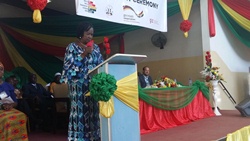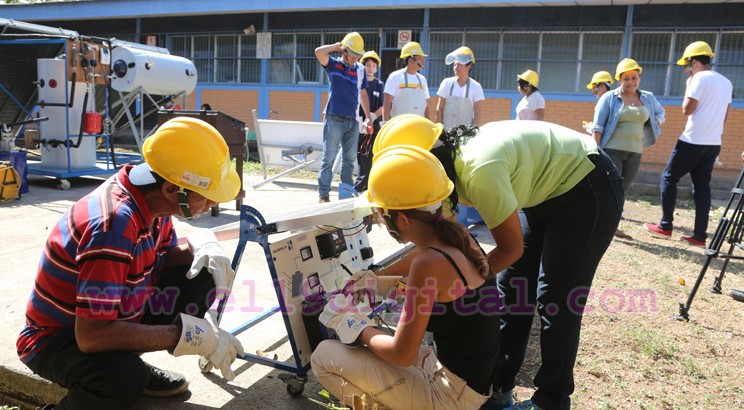Australia/08 abril 2016/Fuente: http://www.jujuyalmomento.com/
La ministra de educación de la provincia mantuvo un diálogo con el embajador australiano Noel Campbell; el objetivo es intercambiar experiencias en educación técnica y a distancia.
Las urgencias están a la orden del día en el Ministerio de Educación, área bastardeada durante años por la gestión Fellner, convertida en un aguantadero de punteros políticos y gremiales.
Sin embargo, pese a esta compleja realidad, reconocida hasta por el gobernador Gerardo Morales, la nueva gestión intenta innovar para realizar un aporte a la calidad de la educación que reciben los alumnos jujeños.
Es lo que se buscó con el contacto mantenido entre la Ministra de Educación Isolda Calsina y el embajador australiano Noel Campbell.
La funcionaria jujeña busca emular experiencias exitosas, en este caso en el país de Oceanía, para replicarlas en la provincia. Las áreas concretas son la educación técnica y a distancia.
El empeño del actual gobierno en innovar en esta área puntual de la educación tiene la justificación en la necesidad de ligar el mundo educativo con el campo laboral. En otras palabras, se trata que en un plazo mediano, la enseñanza que incorporen los alumnos jujeños represente una herramienta para generar recursos en la vida adulta.
Así lo expresó el diplomático australiano.
“Tuvimos una charla bastante positiva hablando de las realidades de Jujuy; la ministra Calsina me dijo los desafíos que hay, hablamos del vínculo imprescindible que hay entre educación y la posibilidad de encontrar trabajo, aspectos que van juntos”, explicó Campbell.
“En Jujuy, tanto como en Australia, hay zonas muy remotas, así que también hablamos de la tecnología que usamos nosotros para tener educación de distancia”.
Campbell prosiguió: “hablamos de la importancia de la educación técnica; muchas de las nuevas industrias que están aquí, incluso las que están en la minería, necesitan no sólo ingenieros y geólogos, sino gente con capacidad técnica, gente que pueda mantener los equipamientos, diseñar los programas de computación y la ministra Calsina me dijo que eso es un hueco en el perfil educativo de Jujuy. Nosotros en Australia podríamos ayudar en compartir nuestra experiencia porque es un sector bastante bien desarrollado en mi país”.
El vínculo fue iniciado por las nuevas autoridades del ministerio de educación. El tiempo dirá si se lo puede extender la iniciativa en el tiempo para alcanzar el objetivo.
Fuente de la Noticia y Foto:
http://www.jujuyalmomento.com/post/48990/calsina-busca-herramientas-en-el-sistema-australiano-de-educacion.html








 Users Today : 24
Users Today : 24 Total Users : 35459930
Total Users : 35459930 Views Today : 28
Views Today : 28 Total views : 3418493
Total views : 3418493